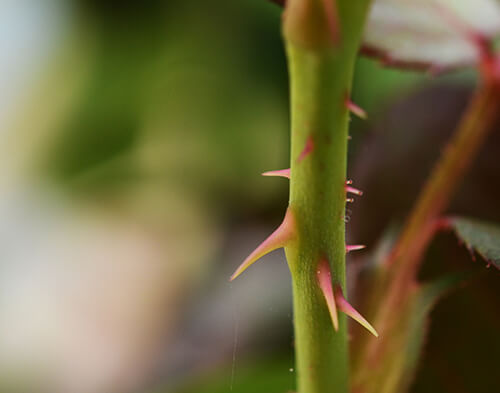Brush control
Jun 29, 2020

Each farmstead across our great state has, somewhere on it, unwanted briars and/or brambles of small brush, perhaps in a pasture field or a fencerow. So, the dilemma becomes when is the optimum time to spray to control it. Interestingly, the optimum time is mid-July.
Most if not all woody stemmed, perennial plants like briars have a life cycle that includes producing a fruit or a flower. That’s just the way Mother Nature designed them. As they are producing their seed or flower, all the water and nutrients that plant is taking in is flowing upward to “feed” that flower or seed.
Once the mission of seed or flower production is complete, the flow of water and nutrients inside that plant changes to a downward flow to the roots. This happens because perennial plants survive the winter by preserving their roots. They go from feeding the flower or seed to feeding their roots. For almost all these type of plants, this change in flow occurs around mid-July. Hence this period is the right time to spray to control. Applications at this point allow the herbicide to be taken in by the plant, transferred to its water flow system, and be taken down to the roots so that roots are killed. No roots means no plant!
A second thing to remember about this practice is three words — “DO NOT MOW.” I know that dead brush or dead briars are ugly in your pasture fields or fencerows. But please do not even consider mowing them off or taking them out for at least 6 months. This allows a great herbicide like Pasturegard to work and eliminate all the roots.
For more information contact your local Co-op or local Co-op Agronomist!
Most if not all woody stemmed, perennial plants like briars have a life cycle that includes producing a fruit or a flower. That’s just the way Mother Nature designed them. As they are producing their seed or flower, all the water and nutrients that plant is taking in is flowing upward to “feed” that flower or seed.
Once the mission of seed or flower production is complete, the flow of water and nutrients inside that plant changes to a downward flow to the roots. This happens because perennial plants survive the winter by preserving their roots. They go from feeding the flower or seed to feeding their roots. For almost all these type of plants, this change in flow occurs around mid-July. Hence this period is the right time to spray to control. Applications at this point allow the herbicide to be taken in by the plant, transferred to its water flow system, and be taken down to the roots so that roots are killed. No roots means no plant!
A second thing to remember about this practice is three words — “DO NOT MOW.” I know that dead brush or dead briars are ugly in your pasture fields or fencerows. But please do not even consider mowing them off or taking them out for at least 6 months. This allows a great herbicide like Pasturegard to work and eliminate all the roots.
For more information contact your local Co-op or local Co-op Agronomist!